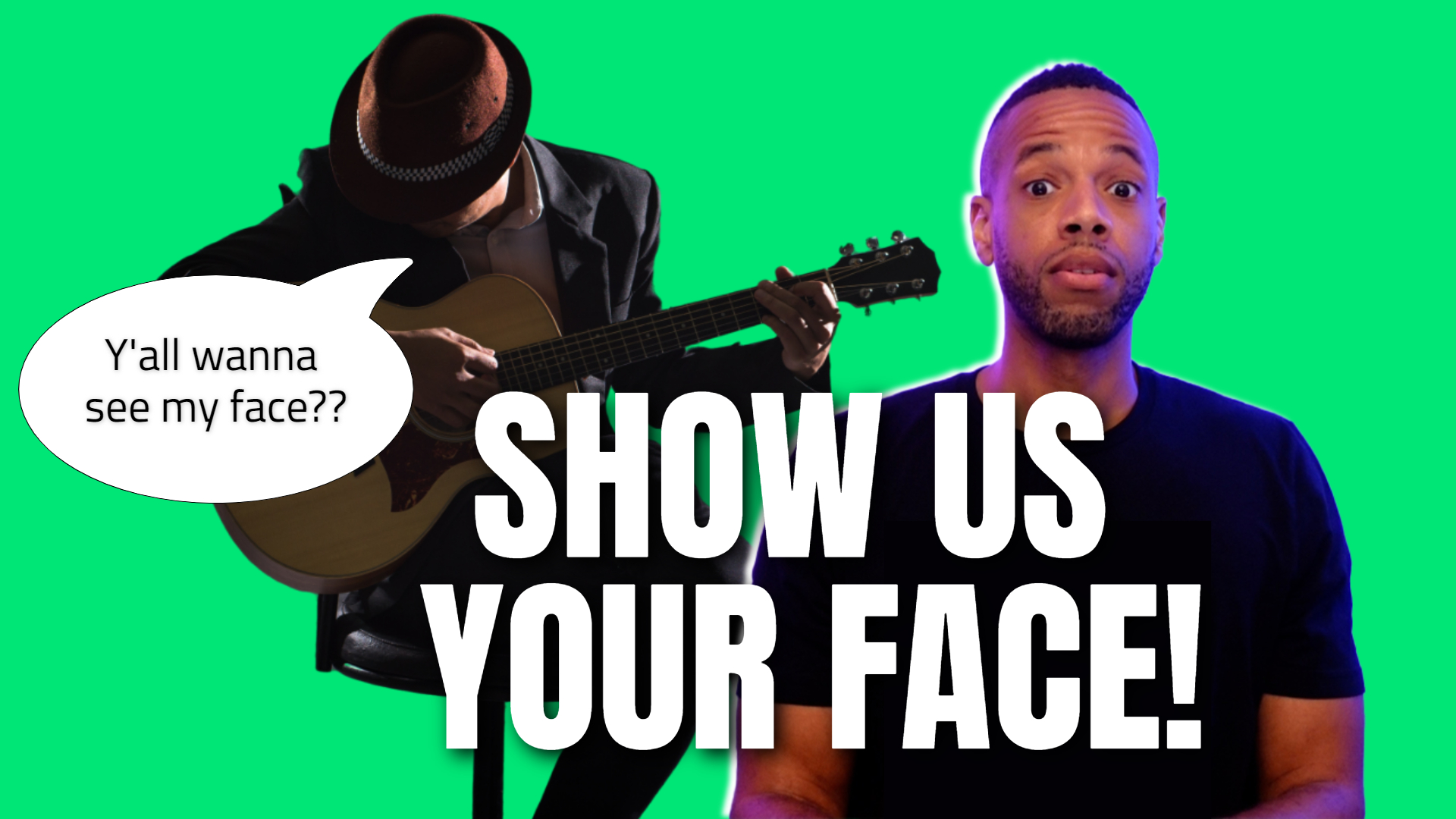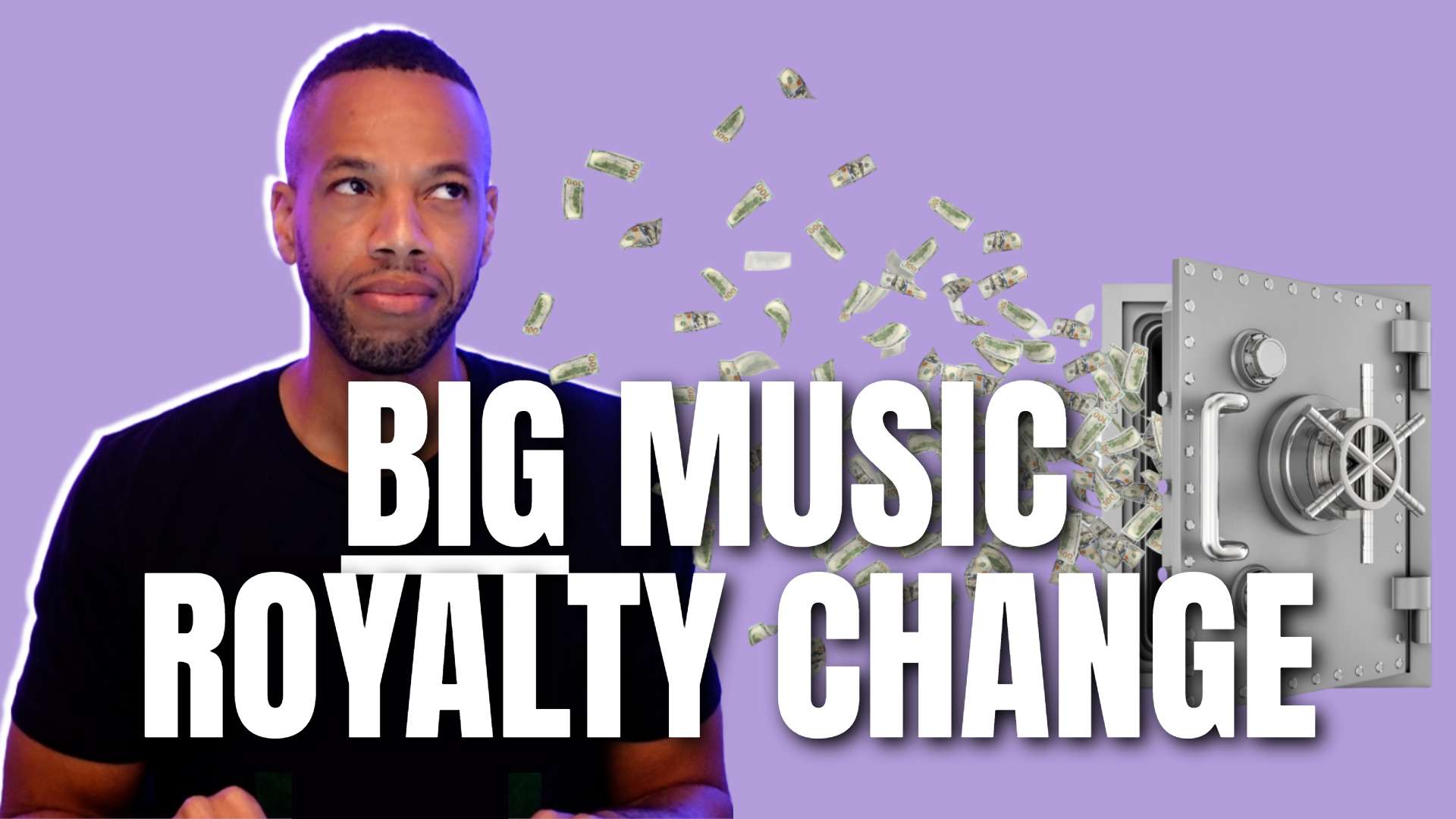Independent Artists Vs Signing A Record Deal: The Truth About Both

*This article may contain links to affiliate products & services. We have reviewed these services to try and ensure the highest quality recommendations*
Written by Ramsey Brown.
There is an ongoing debate in the music industry on whether or not it’s best for artists to stay independent or to sign a record deal. Some years ago, signing to a major label was every musician's dream. But in today’s modern music industry, there has been some scrutiny around record label contracts — causing more and more musicians to stay independent.
At the end of the day, signing to a label and staying independent each come with their own advantages and disadvantages. While we can’t tell artists what is best for them, we can tell you the hard cold truth about both options.
If you are serious about pursuing a career in music, the big question has likely crossed your mind several times… Should I stay independent or sign a record deal? In this article, we will go over the pros and cons of these two different routes, clearing up common misconceptions surrounding them.
Continue reading this guide to learn the truth about being an independent artist vs. signing a record deal. Let’s dive in!
Independent Artists
Despite assumptions, it is totally possible to achieve success as an independent artist. In fact, opportunities for independents are largely on the rise. It is now more feasible than ever for artists to break into the mainstream without the help or funding of a major label.
Signing a record deal has its advantages (which we will discuss later) but it is certainly not necessary in order to have a profitable and rewarding music career.
Chance the Rapper is an excellent example of an independent artist who has seen major success without signing to a record label. His self-released mixtape, Coloring Book earned him three Grammy Awards. It also became the first streaming-only album to win a Grammy Award.
Among Chance, Macklemore, Lizzo, Nipsey Hussle, and many others have built successful independent music careers while refusing to sign record deals. While it may seem like these artists found fame easily, achieving success independently is quite an uphill battle.
There are disadvantages that many independent artists face, but with this also comes many advantages as well. Below we will go over some key points of being an indie artist, and how it compares and contrasts to being a signed label artist.
Truths About Being Independent
It’s Hard Work
Being an independent artist requires a lot of hustle and grind. Unlike signed artists, indie’s must rely on themselves (or often the help of a small team) for everything. They don’t have the financial backing that a huge label provides, nor the major industry connections or business knowledge.
Indie artists are literally running their own music business and must be highly self-sufficient. This means funding their own projects, managing their own marketing, promotion, and social media, booking their own rehearsal and studio time, and handling all admin work like paying taxes, bills, etc.
It’s Also Easier Than Ever Before
The digital era brings a variety of music services and tools for independent artists. Musicians have access to music distribution, marketing, streaming, merchandise creation, and other services.
The internet also makes it easy for indie musicians to reach new audiences and grow their fanbase by themselves. They can now deliver their music to digital music stores, music platforms, and streaming services by themselves without the help of a record deal or label.
Complete Creative Control & Artistic Freedom
Staying independent means that you have complete control over your creative development. So if you want to express an opinion, switch up your genre, experiment with new sounds, or change anything regarding your music and career, you’re free to do whatever you please.
As an independent musician, you have the free will to make decisions about your own creative vision and direction, which is hugely important to most creators. Indie artists have full control over marketing, distribution, artwork, deadlines, and more.
You Own More & Earn More
Signing a record deal means signing away (some or all of) the rights to your music. Labels get to determine who profits what from your music — and with so many hands in the pot, the less you're likely to earn from your own music.
By staying independent and owning your own copyrights, you will receive more royalties anytime your music is streamed, sold, performed live, played on the internet, radio, or licensed for TV or film. Although it may not be a ton of money, it is a satisfying reward regardless.
Owning your rights also gives you the upper hand and negotiation leverage anytime a publishing, sync, licensing, or record deal lands on the table in the future.
Signing a Record Deal
Now that you know the truth about being an independent artist, it’s time to discuss what it means to be a signed label artist as well. Just like anything in life, there are pros and cons, advantages and disadvantages that all must be considered and weighed out.
In the past, the music industry ingrained people to believe that artists with major record deals are more favorable and end up more accomplished than those without deals. Attracting the attention of a big label is exciting, and the hopes and promises they sell are even more exciting.
Record labels are notorious for packaging up their deals in a way that it’s almost impossible for an act to refuse. Artists become blinded by the excitement of a major label and big advance that they’ll sign and agree to anything in the heat of the moment.
However, when approached with a record deal opportunity, it’s important to take a step back, read the fine print (literally), and consider the long-term vs. short-term risks and rewards.
Below we’ll list some truths about what it means to sign a record deal, looking at the benefits and drawbacks that actually come with being a signed label artist vs. staying independent.
Truths About Signing A Record Deal
More Connections, Resources, & Budgets
Perhaps the greatest benefit of signing to a record deal is gaining access to the label’s connections, resources, and funding. Established labels are able to provide their artist with just about anything they need to support their music and careers.
Labels are typically responsible for mastering, distribution, album artwork creation, marketing, merchandise, touring, music videos, recording costs, social media, PR, setting up collaborations, and other expenses.
Reaching Larger Audiences
Because record labels do have larger resources and budgets, they’re able to promote and market their artists to a much larger audience. This can present major opportunities for you and your music on both an international and global scale.
Most labels have established relationships with other major organizations, therefore they are better positioned to secure licensing and publishing deals, book artists for bigger shows at larger venues and festivals, get more media coverage, radio plays, and other agreements.
High Failure Rate
It is a known fact that many acts get stuck in limbo once signed to a major record label, neither being released nor advanced to the next level. Too many artists believe that when they get signed to a major label, all their dreams of fame and riches will come true. However, this is typically not true.
99% of artists signed to a major label deal are shelved or put on the back burner. This is because they sign a ton of artists, all of who are competing for the label's attention and dollars. But If you're not U2 or Justin Bieber, at the top of the food chain, a lot of times artists just get lost in the middle.
Advances Must Be Recouped
An advance is the lump sum of money artists are paid upon signing to a label, or upon completion of a music project under a record deal. But what’s so important for artists to understand is that the money being ‘advanced’ to them has to eventually be paid back to the label.
The majority of record deals are structured so that the label will receive all of the artist’s royalties until the advance is recouped. In some unfortunate cases, the record company also counts the expenses from recording, touring, production, promotional, and more as part of the advance.
Meaning, expenses often assumed to be on the labels tab actually end up on the artist’s tab. The record company will repay itself for these expenses — out of your royalties. Artists will never see a royalty check until their advance is recouped, which in some cases can take an entire lifetime.
Lack of Freedom
Not only will you lack creative freedom and lose most of your artistic control when signed to a record label, but there are also many instances where artists get locked into contracts and bad deals with no way of getting out.
A huge disadvantage of most record deals is that if the company isn’t satisfied with what the artist is delivering, at any time the artist can be dropped from the label. On the contrary, if the artist isn’t happy with the label, they are stuck with them until the contract terms are met. Often this will entail the signed artist producing a set number of albums before they can get out of the deal.
Staying Independent Vs. Signing a Record Deal
So, should you stay independent or sign with a record label? As you learned from the info above, each has its advantages and disadvantages. Ultimately, the decision depends on who you are as a musician and what your career ambitions look like.
Artists who want to retain their master rights, keep 100% of their royalty profits, have complete creative control, and are music business savvy may consider going independent.
But on the other hand, if you want more exposure and increase your chances of going global, signing with a record label offers you the best chance.
Always talk to professionals and your music industry colleagues for advice before making any huge career decisions. If you are considering the label route, try getting in touch with an artist on the same label and ask them questions about how their experience has been. Also, ALWAYS hire a lawyer to review any contracts or deals before signing.
Last but not least, remember that YOU are the only one responsible for your success. Signing your life away to a label isn't a guaranteed ticket to the top. Consistency, hard work, dedication, and determination will always be the recipe for true success.
When your song is ready to go, it's time to start promoting it to potential fans! Omari has the best organic promotion services money can buy. With packages for Spotify, TikTok, Instagram, and YouTube, we will get your music the traffic and attention it deserves! Click below for more information.
SPEAK YOUR MIND
How This INDIE Artist Got Over 67,598,275 Streams On ONE Song
Join the No-Nonsense Music Marketing Newsletter to get the most valuable weekly case studies and strategies to grow your music business!




